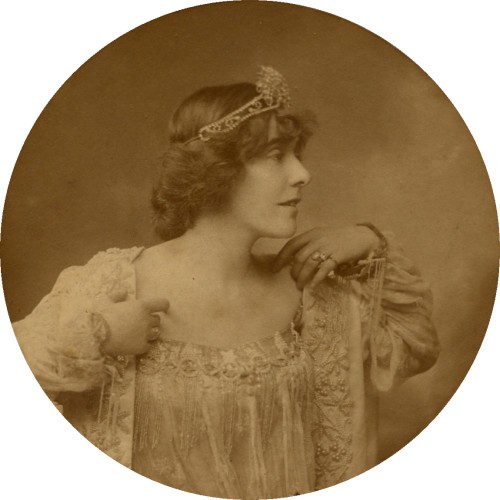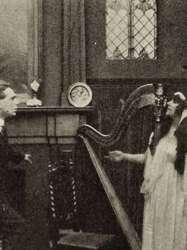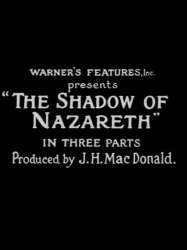Constance Crawley is a Actor American born on 30 march 1870

Constance Crawley (30 March 1870 – 17 March 1919) was an English actress best known for leading roles in Shakespeare tragedies. She gained notice on the American stage at the start of the 20th century, and later starred in and wrote several silent films.
Crawley was born Constance Ione "Emily" Thompson in Sunnycroft, Wandsworth, Surrey. She was the daughter of Theophilus Wathen Thompson, a wealthy London solicitor, and his wife Maria Elizabeth Abbott, as well as the granddaughter of Theophilus Thompson, M.D., a Fellow of the Royal Society. She became Constance Crawley in 1892 when she married John Sayer Crawley, an aspiring actor who encouraged her to seek stage roles. This resulted in her discovery in a London salon in 1897 by Sir Herbert Beerbohm Tree, who gave her the part of Faith Ives in the Henry Arthur Jones play The Dancing Girl.
Later she and her husband became members of the stage company of Sir Henry Irving that toured South Africa during the Boer Wars. Upon her return to England, she created the role of Roma in a dramatisation of The Eternal City.
Crawley and her husband came with the Ben Greet players in 1902 to the United States, where she was understudy to Greet's leading lady Edith Wynne Matthison. Crawley returned with Greet the following season and gained wide notice playing the female lead in Shakespeare roles opposite Greet, and as the female lead in Greet's Chicago and west coast production of the medieval morality play Everyman, whereas Matthison continued the lead roles in the company's east coast productions. Crawley then returned as the sole female lead on Greet's third tour of the States in 1904, with a young Sybil Thorndike as her understudy.
She returned to the British stage for two years, but was back in the United States in 1906 with her own stage company. Elsa Maxwell, who had joined Crawley's company, writes that they opened their tour of North America in Pasadena on the night of the Great San Francisco earthquake, which levelled every theatre on their California itinerary, after which the tour continued with a succession of performances in Texas, Louisiana, Missouri and New York. Although Crawley's Broadway appearances with her company were few, she had success elsewhere, particularly in the midwest and California. She spent several months recuperating in the resort town of Sierra Madre, California after contracting tuberculosis during a 1912 tour of Canada, and then settled in Los Angeles from 1913 on to focus her career on silent films.
Crawley became closely associated with Arthur Maude, a British actor and director ten years her junior, who in 1906 had become the manager of her stage company. He ultimately took over managing her career as well, and from at least 1914 on they lived together at the same Los Angeles address. The two played opposite each other on stage and then in films, including four movies with their own production company, Crawley-Maude Features. One of their film projects was a 1914 screen adaptation of the Everyman play that had brought Crawley to the attention of U.S. audiences. However, their version of the film came out only a few months after the release of a color version starring Linda Arvidson, and neither film received much notice. Crawley and Maude also starred in six films with the short-lived American Film Manufacturing Company (Flying "A" Studios) of Santa Barbara, California, which at the time was one of the largest motion picture studios in the United States. Their 1916 film, The Wraith of Haddon Towers, is considered one of the first movies in the then emerging genre of horror films. Crawley's husband remained in New York during these years, where, under the stage name Sayre Crawley, he enjoyed a long career on Broadway. Though they never divorced, the Crawleys remained separated.
Later years and death
Crawley's last major stage role was on 19 May 1916 when the Hollywood Businessmen's Club for the 400th anniversary of Shakespeare's death staged an outdoor production of Julius Caesar that was performed by a cast of 5,000 to an audience of 40,000 in the Hollywood Hills. Crawley played the role of Calpurnia opposite Tyrone Power as Marcus Brutus and Douglas Fairbanks, Sr. as Cato. Her later stage appearances were largely one-woman shows where, as part of the entertainment, members of the audience engaged her in conversation on topics of their choosing, with proceeds from the show going to charity.
Crawley never fully recovered from her 1912 episode with tuberculosis. In declining health, she took on no more film acting roles after the March 1916 release of her film Revelations, but she remained active in the film industry as a scenario writer, and she co-wrote three screenplays with Arthur Maude. Despite being in poor health in her final years, she was still part of the Los Angeles social scene, entertaining artists and entertainers at her home at 1203 Shatto place, which after her death was set aside in her memory as an art center.
She died on 17 March 1919 in Los Angeles., and her estranged husband John Sawyer Crawley handled the final affairs of her estate, even though Arthur Maude had been her companion for the previous six years. Although her age at the time of her death was reported in the newspapers as 39, she was actually a few days shy of 49, having been less than truthful as to her birth date. She is buried with her daughter Vere in Angelus-Rosedale Cemetery in Los Angeles.
Personal life
Crawley and her husband had one child, a daughter named Vere Crawley, who was born in 1893 in England. Vere later lived near her mother in Los Angeles, before dying of tuberculosis in 1918 when she was only 25 years old. Crawley's wit and humour made her popular with the press, who interviewed her regularly. She kept one or more monkeys as pets during most of her adult life, and her adventures smuggling them into train stations and hotel rooms in hat boxes made for popular reading in the newspapers.
Source : Wikidata
Constance Crawley

Birth name Constance Emily Thompson
Nationality USA
Birth 30 march 1870
Death 17 march 1919 (at 48 years)
Nationality USA
Birth 30 march 1870
Death 17 march 1919 (at 48 years)
Biography
Early life and careerCrawley was born Constance Ione "Emily" Thompson in Sunnycroft, Wandsworth, Surrey. She was the daughter of Theophilus Wathen Thompson, a wealthy London solicitor, and his wife Maria Elizabeth Abbott, as well as the granddaughter of Theophilus Thompson, M.D., a Fellow of the Royal Society. She became Constance Crawley in 1892 when she married John Sayer Crawley, an aspiring actor who encouraged her to seek stage roles. This resulted in her discovery in a London salon in 1897 by Sir Herbert Beerbohm Tree, who gave her the part of Faith Ives in the Henry Arthur Jones play The Dancing Girl.
Later she and her husband became members of the stage company of Sir Henry Irving that toured South Africa during the Boer Wars. Upon her return to England, she created the role of Roma in a dramatisation of The Eternal City.
Crawley and her husband came with the Ben Greet players in 1902 to the United States, where she was understudy to Greet's leading lady Edith Wynne Matthison. Crawley returned with Greet the following season and gained wide notice playing the female lead in Shakespeare roles opposite Greet, and as the female lead in Greet's Chicago and west coast production of the medieval morality play Everyman, whereas Matthison continued the lead roles in the company's east coast productions. Crawley then returned as the sole female lead on Greet's third tour of the States in 1904, with a young Sybil Thorndike as her understudy.
She returned to the British stage for two years, but was back in the United States in 1906 with her own stage company. Elsa Maxwell, who had joined Crawley's company, writes that they opened their tour of North America in Pasadena on the night of the Great San Francisco earthquake, which levelled every theatre on their California itinerary, after which the tour continued with a succession of performances in Texas, Louisiana, Missouri and New York. Although Crawley's Broadway appearances with her company were few, she had success elsewhere, particularly in the midwest and California. She spent several months recuperating in the resort town of Sierra Madre, California after contracting tuberculosis during a 1912 tour of Canada, and then settled in Los Angeles from 1913 on to focus her career on silent films.
Crawley became closely associated with Arthur Maude, a British actor and director ten years her junior, who in 1906 had become the manager of her stage company. He ultimately took over managing her career as well, and from at least 1914 on they lived together at the same Los Angeles address. The two played opposite each other on stage and then in films, including four movies with their own production company, Crawley-Maude Features. One of their film projects was a 1914 screen adaptation of the Everyman play that had brought Crawley to the attention of U.S. audiences. However, their version of the film came out only a few months after the release of a color version starring Linda Arvidson, and neither film received much notice. Crawley and Maude also starred in six films with the short-lived American Film Manufacturing Company (Flying "A" Studios) of Santa Barbara, California, which at the time was one of the largest motion picture studios in the United States. Their 1916 film, The Wraith of Haddon Towers, is considered one of the first movies in the then emerging genre of horror films. Crawley's husband remained in New York during these years, where, under the stage name Sayre Crawley, he enjoyed a long career on Broadway. Though they never divorced, the Crawleys remained separated.
Later years and death
Crawley's last major stage role was on 19 May 1916 when the Hollywood Businessmen's Club for the 400th anniversary of Shakespeare's death staged an outdoor production of Julius Caesar that was performed by a cast of 5,000 to an audience of 40,000 in the Hollywood Hills. Crawley played the role of Calpurnia opposite Tyrone Power as Marcus Brutus and Douglas Fairbanks, Sr. as Cato. Her later stage appearances were largely one-woman shows where, as part of the entertainment, members of the audience engaged her in conversation on topics of their choosing, with proceeds from the show going to charity.
Crawley never fully recovered from her 1912 episode with tuberculosis. In declining health, she took on no more film acting roles after the March 1916 release of her film Revelations, but she remained active in the film industry as a scenario writer, and she co-wrote three screenplays with Arthur Maude. Despite being in poor health in her final years, she was still part of the Los Angeles social scene, entertaining artists and entertainers at her home at 1203 Shatto place, which after her death was set aside in her memory as an art center.
She died on 17 March 1919 in Los Angeles., and her estranged husband John Sawyer Crawley handled the final affairs of her estate, even though Arthur Maude had been her companion for the previous six years. Although her age at the time of her death was reported in the newspapers as 39, she was actually a few days shy of 49, having been less than truthful as to her birth date. She is buried with her daughter Vere in Angelus-Rosedale Cemetery in Los Angeles.
Personal life
Crawley and her husband had one child, a daughter named Vere Crawley, who was born in 1893 in England. Vere later lived near her mother in Los Angeles, before dying of tuberculosis in 1918 when she was only 25 years old. Crawley's wit and humour made her popular with the press, who interviewed her regularly. She kept one or more monkeys as pets during most of her adult life, and her adventures smuggling them into train stations and hotel rooms in hat boxes made for popular reading in the newspapers.
Usually with
Filmography of Constance Crawley (5 films)
Actress
 , 35minutes
, 35minutesDirected by Arthur Maude
Origin USA
Actors Arthur Maude, Constance Crawley, William A. Carroll, George Clancey, Nell Franzen, William Frawley
Plagued by creditors, but with no money to pay his debts, Lord Loveland (Arthur Maude) leaves England and sails to the United States hoping to find a wealthy heiress to marry. During the voyage, he makes friends with a lady playwright named Leslie Dearmer (Constance Crawley), whom he likes, but believing her not to be the wealthy heiress he seeks, he is reluctant to develop their friendship further. Leslie likes Loveland also and tries to help him after the ship arrives in port.

The Wraith of Haddon Towers (1916)
, 35minutesDirected by Arthur Maude
Origin USA
Genres Horror
Actors Arthur Maude, Constance Crawley, Beatrice Van
Phillip Drummond (Arthur Maude) is summoned from America to England to attend the bedside of his dying uncle, the Baron Drummond. Upon arriving at the castle where the baron lives, Phillip learns that he has a long-dead ancestor, also named Phillip Drummond, whose murder a century earlier is still a mystery. In a room of the castle that is always kept locked, he encounters the female spirit (Constance Crawley) of his dead ancestor's past lover. Phillip's interest in the paranormal leads him to seek out the haunts of this ghost, during which he finds out that he himself is actually the reincarnation of the former Phillip Drummond. His

Embers (1916)
Directed by Arthur Maude
Origin USA
Actors Arthur Maude, Constance Crawley, Nell Franzen, William A. Carroll
Roles Rhea Woodley
Rhea Woodley (Constance Crawley) and her husband Martin (Arthur Maude) have a baby, but the child dies soon after birth, and Rhea's doctor tells her that she cannot risk another pregnancy. Devastated, Rhea becomes withdrawn, and Martin, who is continuing to live an active life, begins to show interest in Rhea's lively cousin Maysie Stafford (Nell Franzen). Wesley Strange (William Carroll), a former suitor of Rhea's, shows up unexpectedly, and when he observes Martin and Maysie flirting, he tells Rhea about it, hoping to drive the Woodleys apart. Rhea still loves Martin, but she fears that she can now no longer meet his needs, so she offers him a divorce, hoping that he can find happiness with her cousin. However, Martin still loves Rhea and declines her offer. Desperate to make Martin happy, Rhea next arranges for him to catch her faking a fondness for Wesley. Taken in by the ruse, Martin finally agrees to a divorce. Maysie then moves in to take over Martin's household, and Rhea, instead of taking up with Wesley, moves to a sanitarium, where she falls deeper and deeper into depression. Realizing that Rhea is fast losing the will to live, her doctor finds her an orphaned infant to care for, and the baby gives Rhea new meaning to her life. Martin meanwhile stumbles across Rhea's diary at his house and learns from it that she never really cared for Wesley Strange and that when he saw them together it was all a ruse to get him to agree to a divorce. He rushes to the sanitarium to be by Rhea's side, and when he finds her with the baby, the couple reconcile when they realize that they still love each other.

Mary Magdalene (1914)
Directed by Arthur Maude
Origin USA
Themes Films about religion, Portrayals of Jesus in film
Actors Arthur Maude, Constance Crawley, William Nigh, Joe Harris, Jefferson Osborne, Jefferson Osborne
Roles Mary Magdalene
The story takes place in Capernaum and Jerusalem during the two years leading up to the crucifixion of Jesus Christ, and follows the lives of Judas Iscariot (Arthur Maude) and Mary Magdalene (Constance Crawley), who indulge in their own selfish pursuits and care little about the plights of others. But when Mary hears Jesus preach an outdoor sermon, she learns the power of Christ's love and abandons her reckless ways to become one of his most ardent followers.

The Shadow of Nazareth (1913)
Directed by Arthur Maude
Origin USA
Genres Drama, Historical
Actors Arthur Maude, Constance Crawley, Joe Harris
Roles Judith
The story opens with Barabbas (Arthur Maude) stealing a headdress of precious stones to impress Judith (Constance Crawley), but her love is actually for Caiaphas (Joe Harris), the high priest of the city, who is devising a plot to kill Jesus Christ. When Barabbas stabs an associate of Caiaphas during an argument over Judith, Caiaphas has Barabbas arrested by Roman soldiers. Then as Barabbas is led away, Caiaphas kills the injured man to prevent him from revealing the plot, and Barrabas is blamed for the crime. Sometime later, Judith at the urging of Caiaphas convinces Judas Iscariot, who is her brother, to betray Jesus, which allows Caiaphas to have Jesus arrested. Barrabas in the meantime has been freed, but is arrested a second time when he makes an attempt on the life of Caiaphas, and Barrabas ends up being held in the same prison as Jesus.
 Connection
Connection




